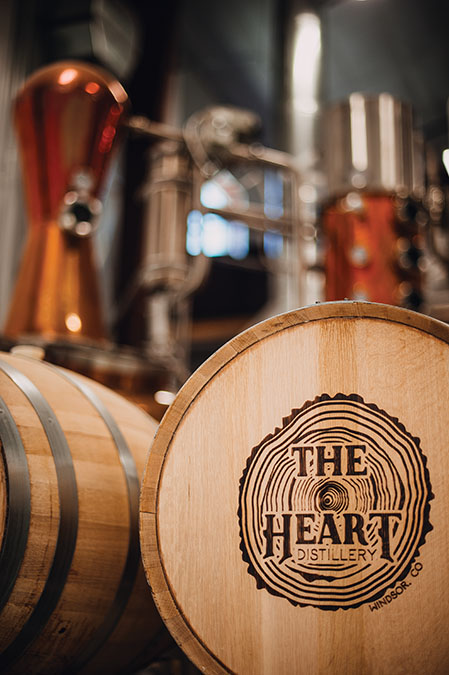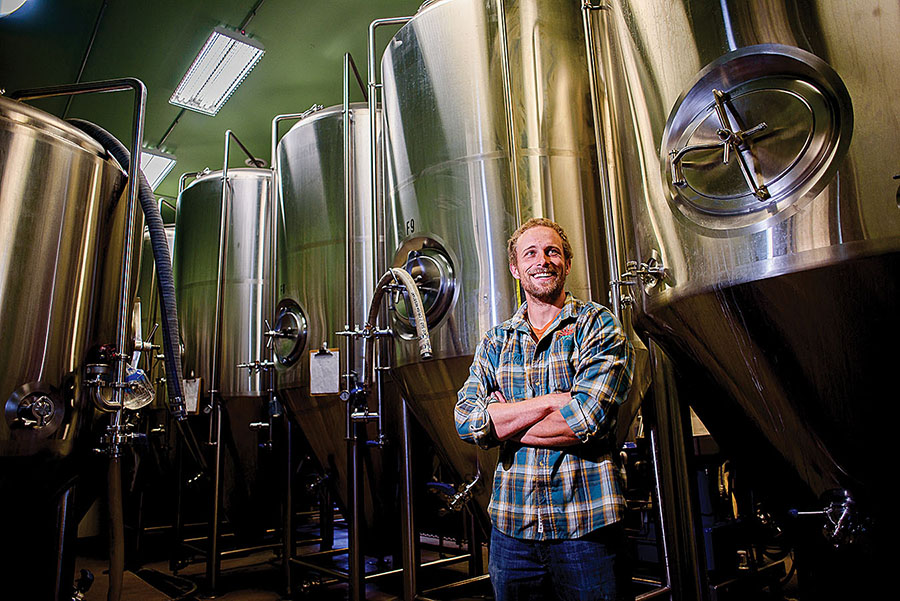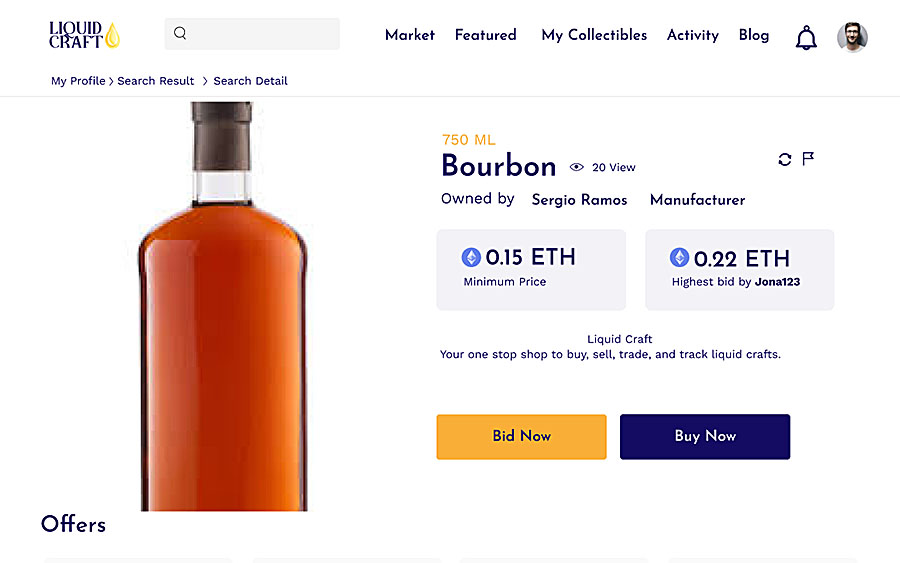
It was inevitable that the NFT craze would find craft spirits sooner or later. Bundle a bottle with a coupon or membership and sell it online via a permanent digital token that can never be altered and can be traded. That’s an idea you can drink to.
Liquid Craft is a family-run business started by the Weaklands, that partners with distilleries, wineries, and breweries to bring the world of collectible liquor to the blockchain. You can almost hear the critic’s arguments as they roll their eyes, “why does collectible liquor need to be part of a blockchain?” What they should be asking is, “what are the benefits of bringing collectible liquor to the blockchain?”
While much of the NFT-related news has focused on celebrity purchases and the astronomical sales of JPEG images, such as the Crypto Punks or Bored Ape Yacht Club, Liquid Craft is bringing tangibility to NFTs and hoping to build brand loyalty for independent crafters across the world. The Weaklands know the marketing struggles firsthand as they own and operate the Heart Distillery and High Hops Brewery. Both businesses share a property in Windsor Colorado and have launched NFT editions with the Liquid Craft marketplace.
“Our end goal is to create an online marketplace like OpenSea (the leading NFT purchasing platform) that’s specifically for liquid crafts, as in beer, wine, and spirits,” says Rachel Lewis, COO of Liquid Craft. “We’re coming at the angle that we’re crafters and we’re making this for crafters to allow freedom in crafting rare and unique spirits and to bring value to them.”
So how does it work? When a distillery, winery or brewery partners with Liquid Craft to release an NFT collection, they can set the amount of NFTs that they would like to release. With each NFT sale, there will be a physical bottle or cask assigned to that NFT that can be redeemed at any time. However, the crafters can also choose to have other benefits written into the smart contract (the code that confirms the NFT on the blockchain) so that a collector may receive lifetime discounts or other perks just for holding onto the NFT. The collector can choose to hold onto the NFT and build out their collection, or if they want, they can resell it to another collector at any time. This is a game changer for both the collectors and the crafters producing the spirit.

For one, the idea of collecting liquor via the blockchain eliminates the necessity of physical space. Someone living in the confines of an inner-city apartment could potentially collect an extensive collection of wine, without needing an elaborate cellar to store the bottles. If they were to plan a dinner party and wanted a particular bottle, all they would have to do is plan accordingly to have the NFT redeemed, and the bottle shipped.
In addition to eliminating the hassle of bottle storage, there are numerous advocates for utilizing the blockchain in the rare whiskey market. Ryan Anderson, a software developer by trade who launched Rare Spirits is entering the space with similar intentions as Liquid Craft, but ultimately is seeking to bring clarity to the marketplace.
“Rare Spirits is mostly facilitating the exchange of collectible spirits between collectors,” says Anderson. “These exchanges happen frequently in the gray market on Facebook groups, and often get shut down by Facebook only to spin up in a new group. Rare Spirits is looking to solve this problem by offering tokenization of collectible spirits, enabling frictionless exchange of asset backed tokens which should be as easy as buying/selling a stock on Robinhood.”
Similar to Liquid Craft, Rare Spirits ensures the authentication, storage, insurance, and delivery should the owner of the asset backed NFT request delivery of the bottle. However, Anderson is quick to point out that Liquid Craft is entering the space with the crafter’s best intentions in mind.
“Liquid Craft provides a marketplace for crafters to engage directly with customers, which is an incredible opportunity for craft distilleries to improve brand awareness and build a relationship with consumers and collectors,” says Anderson. “Many craft distilleries don’t have the ability to build/maintain their own online marketplace, and a shared marketplace provides network effects which will benefit all craft producers on the platform.”
Self-proclaimed whiskey collector, Mark Belluz echoes the sentiment of providing more transparency while also enhancing the chances for independent crafters to connect with a broad audience.
“The blockchain itself makes every transaction viewable by everybody else, there’s a lot more clarity as to what’s going on with things like allocations and sales and none of that is really possible in the opaque current market,” says Belluz. “When somebody buys a tokenized version of the alcohol, or NFTs in general, they immediately become a brand advocate because they want their own investment to do well.” The shift in mentality from consumer to investor, may explain why the rare whiskey market has gone ballistic in recent years.
“There’s two sides to it from the buyer’s side,” says Belluz. “Most collectors are collecting to consume, but not all. Some collectors are collecting to speculate and hedge because specifically in whiskey, the value of these bottles is getting outrageous. The way I view it as a collector is twofold. One is to hedge at today’s prices so I can guarantee myself a supply of a whiskey I like. And two, is from an investing perspective, it’s probably a safe way to park a few grand in capital as well, given the trend.”
Along with his passion for whiskey, Belluz is also a crypto enthusiast who launched BarrelFi with “Pixie” Paula Dezzutti and Striped Pig Distillery in October of 2021. BarrelFi was the first project to take a Bourbon and tie it to an NFT (to their knowledge). The project has embraced the membership aspect associated with NFT ownership and gave their collectors the ability to vote on when the bourbon is taken out of the barrel.
Other distilleries that choose to tokenize their spirits can get as creative as they want in what they want to offer their loyal collectors. From private tours to merchandise and lifetime discounts, there are no limits to what can be written into the contract of an NFT. The bottom line is that the purchase of a tokenized spirit is an investment and should be treated as such.

The Weaklands see this shift in mentality (from consumers to investors) and the endless potential of the blockchain as an incredible opportunity for craft distilleries, wineries, and breweries across the globe. When you’re going up against liquor store shelves stocked with name brand spirits, sometimes you have to get creative.
“The spirits world is difficult to market and get your unique product out there when you can only make a small volume of product,” says Pat Weakland, Co-owner of High Hops Brewery and The Heart Distillery. “It takes a lot of money to market that and get it to sell. But with this platform and blockchain technology it allows us to get it out there on a global market and allow everybody the opportunity to buy that rare spirit.”
While the opportunity to market a product to a younger demographic with no borders should excite every business, there’s one aspect of NFTs that is truly game-changing: the ability to generate passive income for the crafters. With any NFT, the creator can write a commission fee into the contract for every time the NFT is resold. If the commission fee chosen is 10%, then every time a collector sells the NFT to another collector, the crafter would receive 10% of the sale, transferred to a crypto currency wallet of their choosing.
“We’re not trying to change the current industry, we’re trying to evolve it,” says Zach Weakland, CEO and Founder of Liquid Craft and Head Brewer & Distiller at High Hops Brewery and The Heart Distillery. “The point of Liquid Craft was to bring more power to the crafter, and we really want to showcase independent craft distilleries, wineries and breweries around the world. We’re all in a global market right now, so we’re trying to make that global market work for local.” •








